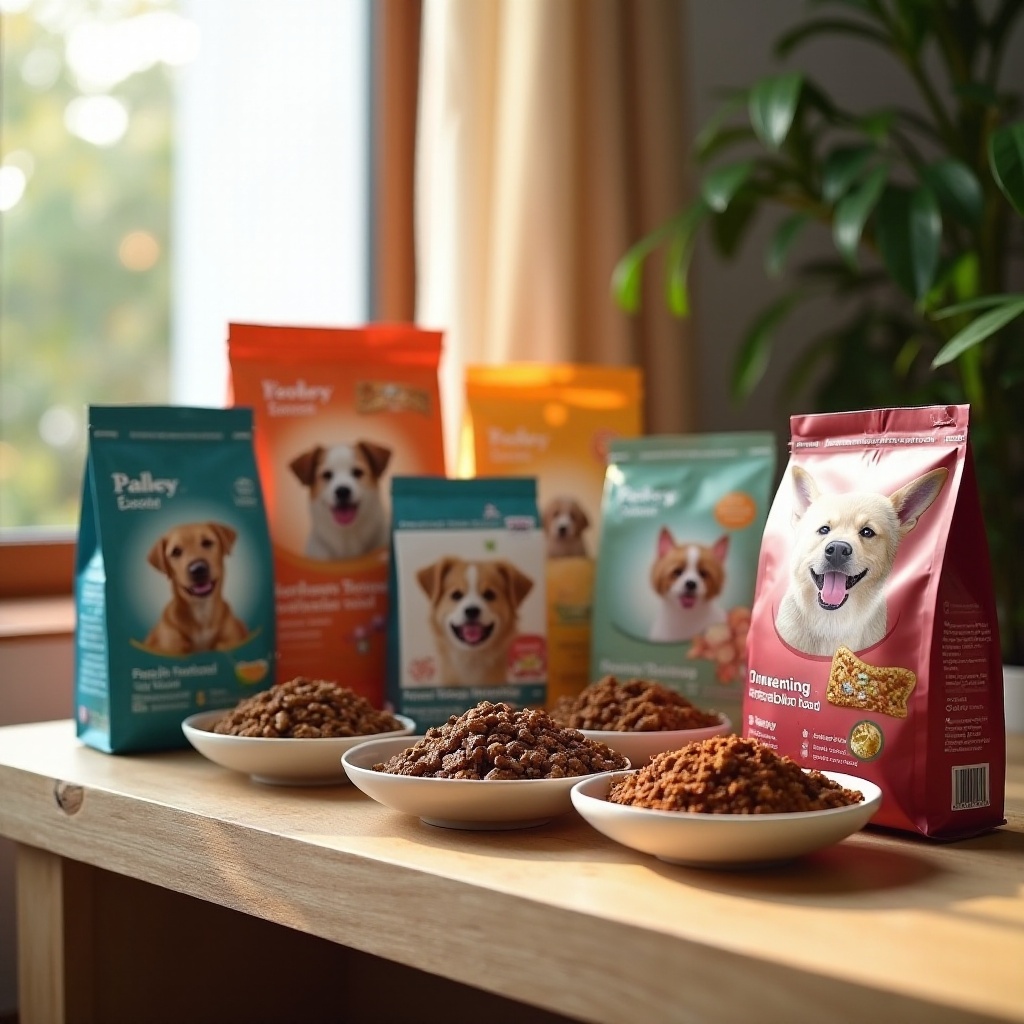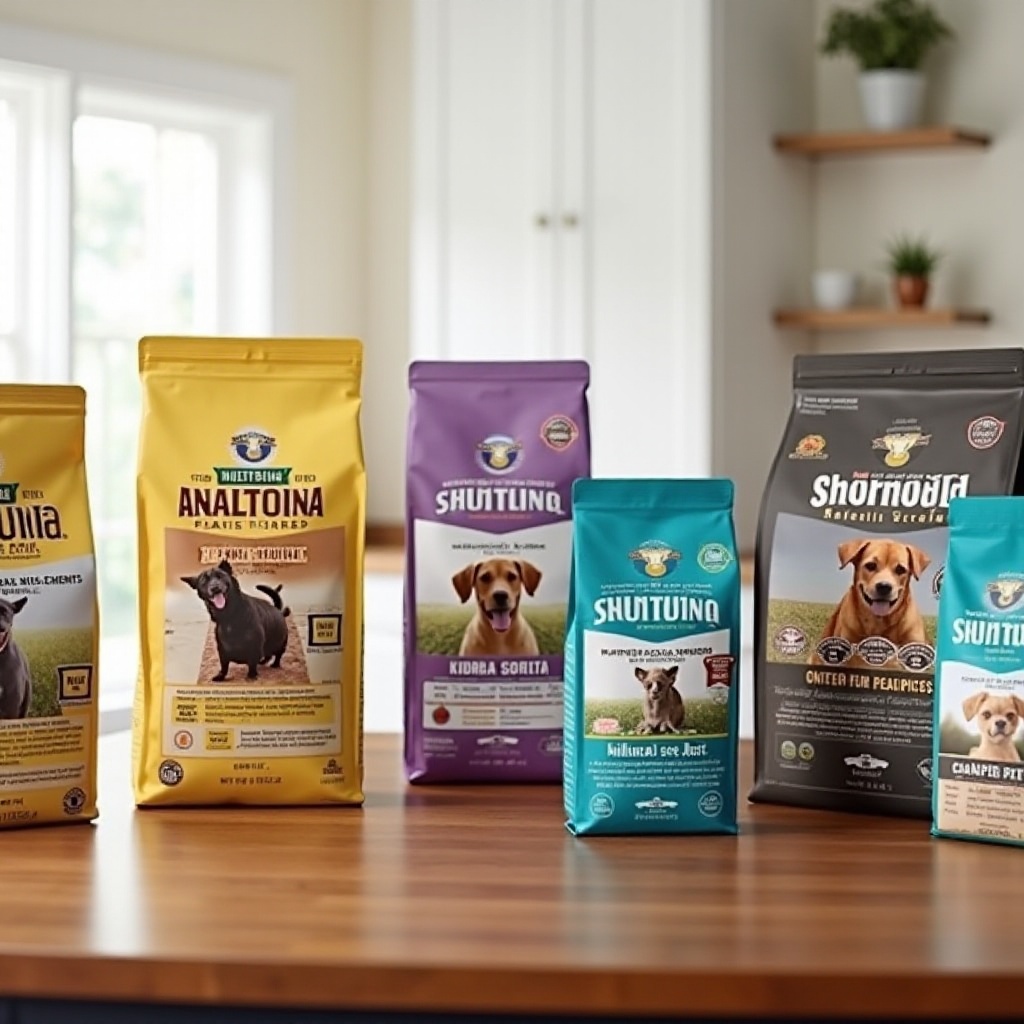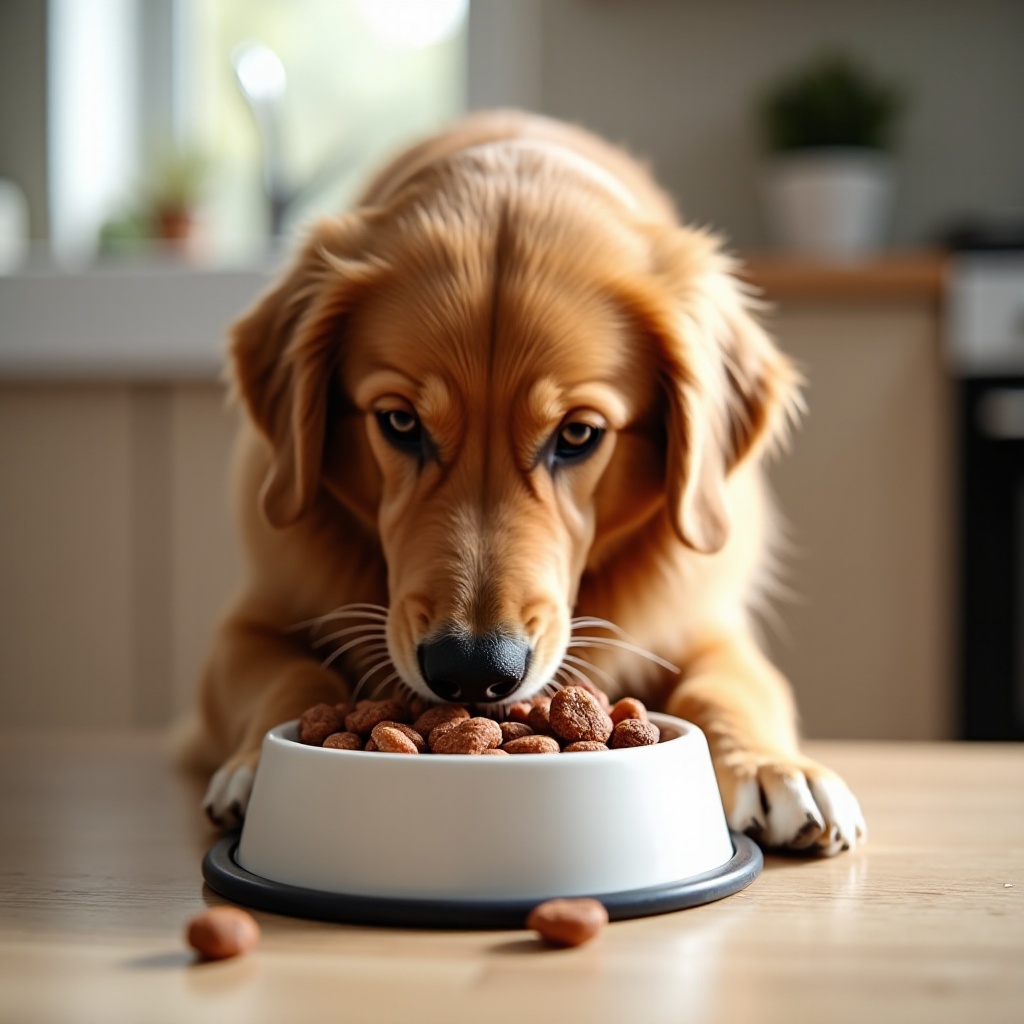Introduction
Choosing the right dog food can make a significant difference in your dog’s stool consistency. If your furry friend is experiencing hard poop, it can be a sign of dietary imbalances or other underlying health issues. In this guide, we aim to help you navigate the options available and select the best dog food for improving stool consistency. Our top picks are based on nutritional value, ingredient quality, and veterinarian recommendations.
Beyond choosing the right food, we provide you with tips on transitioning your dog to new food and managing their overall digestive health. Let’s dive in and help you find the perfect food to keep your dog happy and healthy.

Importance of Proper Stool Consistency
Proper stool consistency in dogs is a marker of good health and proper nutrition. Dogs with hard stools might experience discomfort, constipation, and other digestive issues. Hard stools can also be difficult for your dog to pass, potentially leading to straining and other health problems, such as hemorrhoids or anal fissures.
Monitoring your dog’s stool is essential for their overall well-being. If your dog’s poop frequently appears too hard or dry, it’s crucial to evaluate their diet and hydration. Achieving the right stool consistency isn’t just about picking any dog food; it’s about selecting a formula that supports digestive health and provides balanced nutrition. Improving stool consistency will not only make your dog feel better but also ease clean-up for you.
Factors to Consider When Choosing Dog Food
When selecting the best dog food for hard poop, several factors should guide your decision-making process. Here’s what to look for:
-
Fiber Content: Adequate fiber in dog food helps in softening stools. Look for foods with healthy fiber sources like beet pulp, sweet potatoes, and pumpkin.
-
Moisture Levels: Dry poop can indicate that your dog isn’t getting enough moisture. Consider incorporating wet food or adding water to dry kibble to increase hydration.
-
Digestibility: High-quality, easily digestible ingredients promote better nutrient absorption and regular bowel movements. Avoid fillers and look for whole proteins, grains, and veggies.
-
Protein Quality: High-quality proteins are essential for digestion and overall health. Choose dog foods with named meat sources like chicken, beef, or fish as the first ingredient.
-
Probiotics and Prebiotics: These supplements support gut health and balance the good bacteria in your dog’s stomach. Foods with added probiotics are beneficial for maintaining stool regularity.
-
Avoiding Fillers: Fillers like corn, wheat, and soy can be hard for some dogs to digest and might contribute to stool issues. Opt for dog foods that list whole, recognizable ingredients.
Considering these factors can help you select dog food that not only helps manage hard poop but also supports your dog’s overall health.
Top 5 Dog Foods for Hard Poop
Brand A Formula
Brand A is known for its high-fiber content and inclusion of natural ingredients like sweet potatoes and beet pulp. These components aid digestion and help soften stools. Additionally, the formula includes probiotics that promote a healthy gut environment.
Brand B Special Blend
Brand B’s Special Blend focuses on hydration and digestion. This wet food is rich in moisture, which is essential for preventing hard stools. It includes easily digestible proteins and a balanced mix of vitamins and minerals to support your dog’s overall health.
Brand C Premium
Brand C Premium provides high-quality nutrition with an emphasis on digestibility. The food features limited ingredients, making it perfect for dogs with sensitivities. The inclusion of pumpkin and prebiotics helps improve stool consistency.
Brand D Natural Recipe
Brand D’s Natural Recipe is crafted with natural fibers and excludes common fillers. The formula focuses on whole foods, including carrots and peas, which add necessary fiber and nutrients. It’s fortified with probiotics to aid in digestion and stool regularity.
Brand E Vet-Recommended
Brand E’s formula is often recommended by veterinarians for dogs with digestive issues. It includes a mix of soluble and insoluble fibers that specifically target stool consistency. Additionally, it contains omega-3 fatty acids that support healthy digestion and overall well-being.

How to Transition Your Dog’s Food
Transitioning your dog to new food should be done gradually to avoid digestive upset. Follow these steps for a smooth transition:
- Days 1-3: Mix 75% of your dog’s old food with 25% of the new food.
- Days 4-6: Mix 50% of the old food with 50% of the new food.
- Days 7-9: Mix 25% of the old food with 75% of the new food.
- Day 10 onwards: Feed 100% of the new food.
Monitor your dog’s stool consistency during this period and make adjustments if necessary. If you notice any adverse reactions, consult your veterinarian.

Additional Tips for Managing Stool Consistency
Besides choosing the right dog food, consider these additional tips to manage your dog’s stool consistency:
- Hydration: Ensure your dog has access to fresh water at all times. Proper hydration is crucial for maintaining bowel health.
- Exercise: Regular physical activity stimulates digestion and helps prevent constipation.
- Routine: Keep a consistent feeding and walking schedule to regulate your dog’s digestive system.
- Prevent Overfeeding: Stick to the recommended portion sizes to avoid overloading your dog’s digestive system.
- Avoid Human Food: Limit your dog’s intake of human food that can disrupt their digestive balance.
Implementing these tips can support proper stool consistency and contribute to your dog’s overall health.
Conclusion
Selecting the best dog food for hard poop can significantly improve your dog’s quality of life. Keeping an eye on their diet and ensuring they get adequate fiber, moisture, and high-quality ingredients is key. Combining the right choice of food with proper hydration, regular exercise, and feeding routines will help you manage your dog’s digestive health effectively.
Frequently Asked Questions
How long does it take to see improvements in stool consistency?
Typically, you might notice improvements in your dog’s stool consistency within a week of switching to new dog food, provided the transition is smooth and other factors like hydration and exercise are also managed.
Can I mix different brands of dog food to manage hard poop?
While it’s generally recommended to stick to one high-quality brand, you can mix different brands of dog food, provided they are both suitable for your dog’s specific needs. Always ensure you transition slowly to avoid digestive issues.
When should I consult a veterinarian about my dog’s stool issues?
If your dog continues to have hard stool despite changing foods and following the outlined tips, or if you notice other symptoms like blood in the stool, lethargy, or significant changes in behavior, consult your veterinarian.
